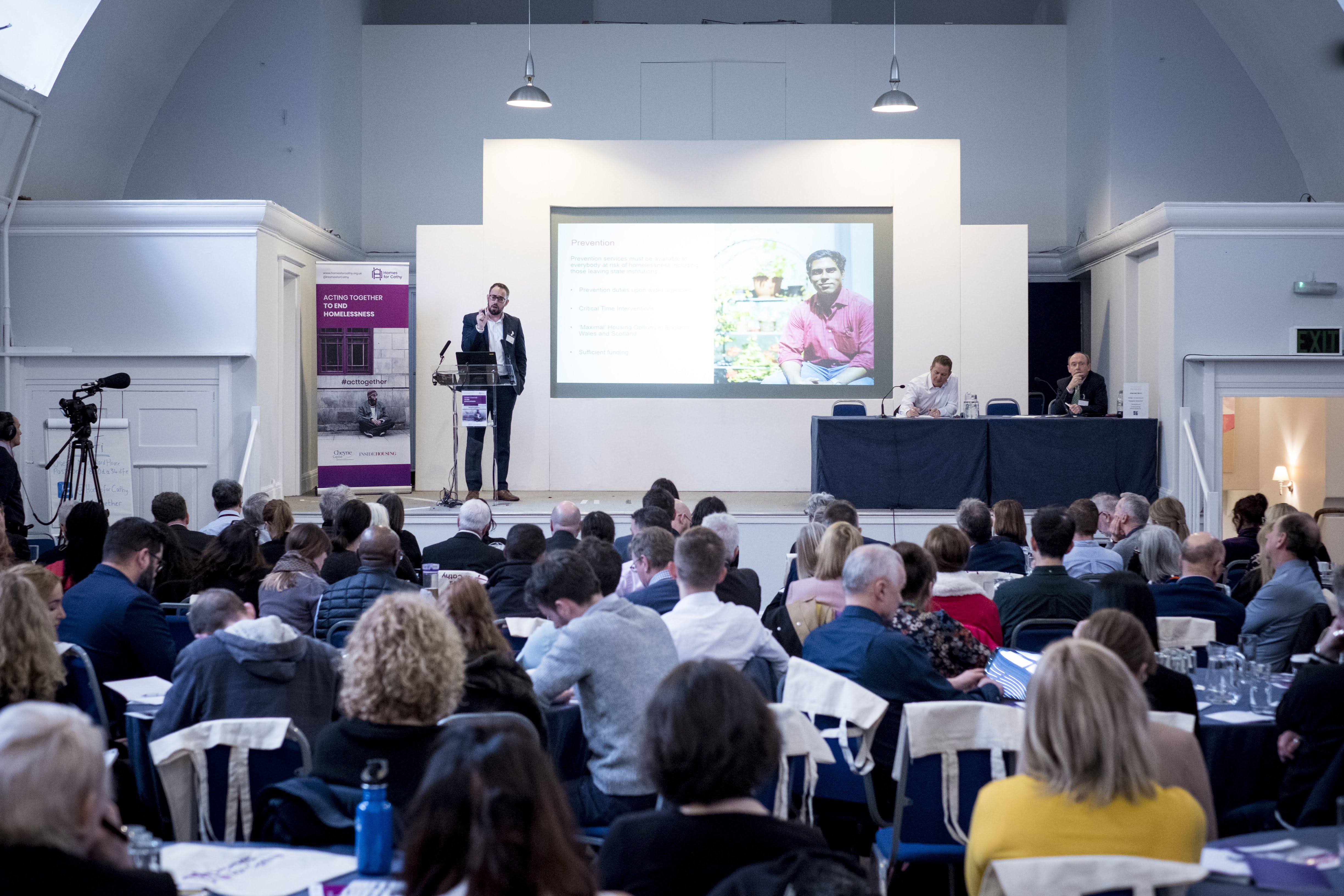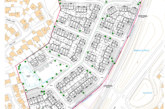
On 30th April, Homes for Cathy held a conference to look at how housing associations can address the growing issue of homelessness.
The conference was well attended, with representatives from the housing association, local authority and charity sectors as well as several members of government. It was chaired by David Bogle, Chief Executive of Hightown Housing Association, and Jon Sparkes, CEO of Crisis. The role of housing associations in addressing homelessness was not understated, with Jon Sparkes commenting that “you can’t solve homelessness without housing associations”. Their role will be discussed in Crisis’ upcoming Plan to End Homelessness, to be launched on the 11th June. The plan will highlight three main solutions for homelessness: 1. Prevention — calling upon a variety of public sector institutions to refer those at risk of becoming homeless with the upcoming ‘duty to refer’ legislation; 2. Rapid rehousing; and 3. Ending rough sleeping and scrapping the vagrancy act.

Shadow Housing Minister John Healy MP spoke at the conference, following the recent publication of the Labour Party’s Housing for the many green paper. He noted four imperatives needed in the sector: urgency, clarity, unity and priority. The importance of unity across the housing sector and of forming partnerships between local authorities and housing associations was echoed throughout the day. The role of local authorities is increasingly important with the recently updated Homelessness Reduction Act. Some local authorities are also taking innovative steps to address homelessness, such as Hackney Council, which recently employed 10 people with lived experience of homelessness into their housing department.
Crisis invited two of its member ambassadors to speak at the event about their lived experience of homelessness. It served as a harrowing reminder to all the attendees of the importance of the issue at stake, and how many have been failed by the social security system. As Shelter CEO Polly Neate put it, the moral right to a home has become “the forgotten arm of the welfare state”.
Paul Doe, ex-Chief Executive of Shepherd’s Bush Housing Group and Trustee of two homeless charities gave some practical advice on what housing associations can do to help:
- Get networked locally: Contact local homelessness charities and ask them what they need, be it expertise, PR/communications, finance or development support.
- Help with nominations from charities: Even small numbers can make a big difference.
- Give charities access to any small buildings you may have: This can help them to lower their administrative costs and run shelters.
- Become a trustee of a charity.
- Try to build a local alliance: Think about how you can build a “coalition of the willing” for homelessness in your area.

Although much of the focus was on homelessness in urban areas such as London, Birmingham and Manchester, the conference gave a reminder of the urgency of the issue in rural communities too. Sue Chalkley, Chief Executive of Hastoe Housing, spoke of the specific issues facing these communities. Despite the rural population constituting around 20% of our national population, only about 8% of rural homes are affordable compared to around 20% of urban homes. Furthermore, between 2014 and 2017, the number of families residing in temporary accommodation in rural communities increased by 500%. Last July, Hastoe launched further research into the issue, with key recommendations including:
- We should have national and regional homelessness strategies that consider the rural context.
- Local authorities should come together and form local rural homelessness forums to share best practice.
- Local authorities should set up community homelessness services that run weekly drop-in sessions offering advice and support for those who are at risk of, or experiencing, homelessness.
Attendees were invited to answer two questions:
- What do housing associations have in abundance that could be better utilised to make the biggest difference on ending homelessness?
- What is the one most ambitious, but absolutely achievable, thing that you/your organisation could commit to that would make the most progress towards ending homelessness?
Homes for Cathy will collate this information to create a charter which housing associations will be able to sign up to. The day ended on a positive note, with Jon Sparkes commenting: “I believe that if we do even half of the things that we’ve said, then we will end homelessness”.








